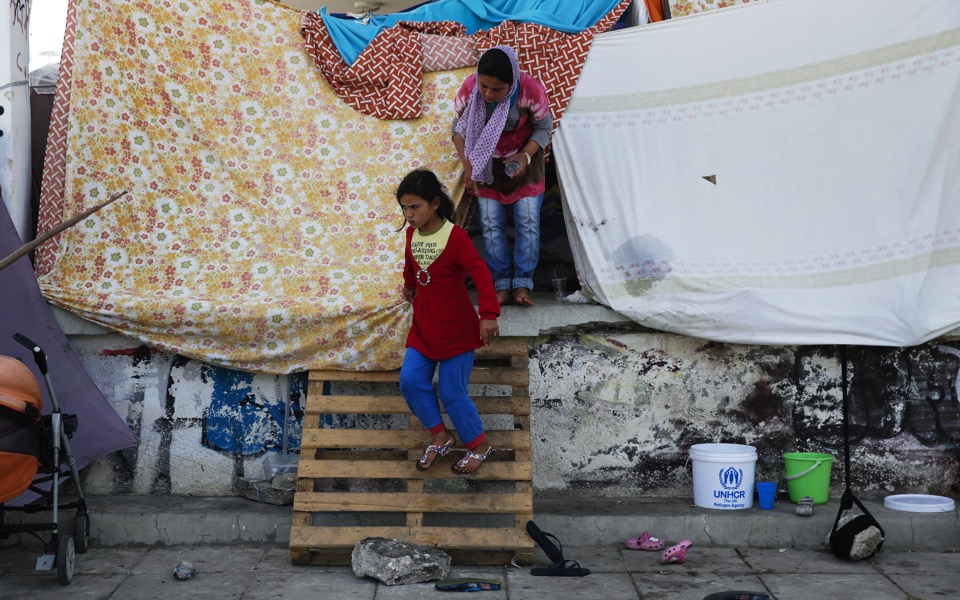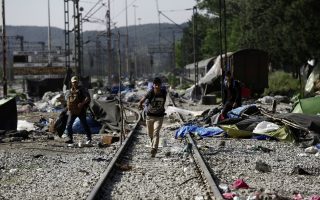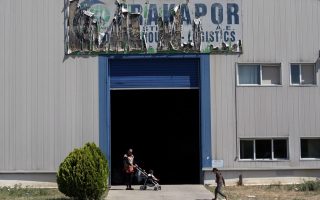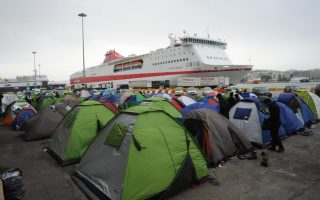Tensions rise at migrant camps, fears grow over EU deal

Thousands of refugees who abandoned a makeshift settlement near Greece’s border with the Former Yugoslav Republic of Macedonia before the police evacuated it last week have set up camp in nearby Polykastro, erecting tents near a gas station.
Tensions at the new makeshift settlement boiled over on Monday when a dispute between different ethnic groups escalated into violence. A Syrian refugee was transferred to hospital with a stab wound in his thigh.
Conditions at state-run facilities for migrants are also substandard, according to the assessment of an official from the Council of Europe. Tineke Strik, who visited several camps, said the facilities offered “no privacy, no fire safety, no light and no ventilation,” adding that migrants also “have no information on their situation or their prospects.”
The government has also come under pressure from European Commissioner for Migration Dimitris Avramopoulos, according to sources.
The commissioner, who visited Greece over the weekend, is said to have expressed concern about the fact a legal committee has upheld three appeals by refugees against their deportation, deeming Turkey to be “an unsafe country,” saying that the development could undermine a deal between Turkey and the European Union to return migrants to Turkey.
Greece legislating the recognition of Turkey as a safe country could be a way around the problem though government officials are said to be reluctant to take such action.
Separately, the Hellenic Railways Organization (OSE) on Monday gave the green light for the resumption of cross-border deliveries after the tracks were blocked initially by migrants protesting the closure of the FYROM border and later the expansion of a makeshift refugee camp near the border village of Idomeni.
On Tuesday, the first train carrying cargo loaded by Cosco, the Chinese logistics firm operating at the port of Piraeus, is to cross the border from Greece to FYROM.
The closure of the railway route connecting Greece and FYROM is estimated to have cost Trainose, OSE’s operations arm, some 2.75 million euros, roughly the size of the company’s profits last year. Some market experts believe the losses are even larger and could potentially jeopardize the government’s plans to privatize the company.
On Monday, OSE officials met with middle-ranking members of Russian Railways who arrived in Greece at the end of last week with Russian President Vladimir Putin. Russian companies are interested in several Greek assets, including Trainose and Thessaloniki Port Authority.





